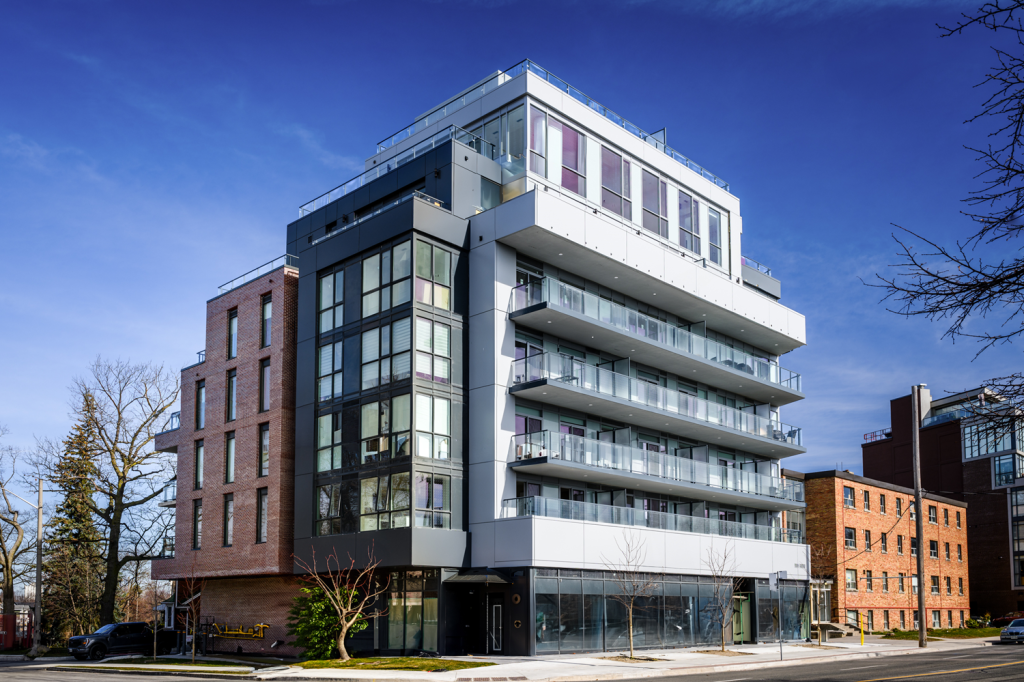 Friday, September 20, 2024
Friday, September 20, 2024  Friday, September 20, 2024
Friday, September 20, 2024 
This is a synopsis of the fifth of 10 Chapters, each to appear in Construction Links Network which began in November 2023. BUILDING TORONTO’s SKYLINE: TORONTO’S CONDOMINIUMS THROUGH THE AGES is available through Amazon in print, Kindle and audible editions.
Condos were legalized in Ontario in 1967, partially due to their success in other North American cities like New York, and partially in an attempt to help alleviate the housing crisis. The economic recession of the 1970s meant that the regulations were ultimately unsuccessful. The laws that govern modern condominiums in Toronto first came into effect with the Condominium act of 1998 and were meant to help regulate the massive growth in the industry seen at the time. This growth is still ongoing over 20 years later.

To ensure that the interests of the City, the planning merits, and the technical aspects of the proposal are appropriately assessed, a Plan of Condominium application is necessary for the City of Toronto before a condominium unit can be built or sold. A plan of condominium, which governs the development of both new and existing structures that are to be converted to condominium ownership, establishes condominium ownership of real estate. The City of Toronto or the Minister of Municipal Affairs and Housing is authorized to approve condominium plans under the Condominium Act, 1998, and its Regulations.
The Chief Planner and Executive Director of City Planning in the City of Toronto are granted the power to exercise this authority under Sections 9 (2) and 51 of the Planning Act. The City assesses the application against predetermined technical standards and planning tests before approving a condominium plan to see if it’s in the public interest.the City of Toronto asked the province for legal authority to control the conversion and destruction of rental housing. The Condominium Act was created to govern modern condos.
Coming into effect on October 17, 2006, the current Official Plan policies for rental housing protections in Toronto helped to ensure that there would be a supply of affordable and middle-range rental housing for newcomers for the long term. In 2007, Section 111 of the City of Toronto Act was declared in effect by the province, including Municipal Code 667 (Residential Rental Property Demolition, and Conversion Control) to limit condo conversions until the vacancy rate returns to at least three per cent.
Condominium approval and development can take up to several years because of regulations. Development teams search for properties where residential development will be the best use of land. Zoning designation must be considered, along with site setbacks, density, and parking needs.
Next, all the development players meet to visualize the maximization of the site’s potential. The urban planner, developer, architect, contractor, and legal team consult with a sales broker to determine whether development is feasible on that site. Once the site is secured, the developer’s pro forma program expands to include financial, construction, environmental, mechanical, electrical, structural, interior designer and sales and marketing professionals.
Obtaining financing is the next challenge. Typically, a lender establishes conditions for funding, often based on achieving a specified level of pre-sales before construction begins. Then the developer can hire the appropriate professionals to get the paperwork and approvals taken care of. There are municipal development fees to be paid and levies, as well as park, education, and arts contributions levies.
After careful consideration of unit mix, style and configuration, the condominium can go on sale. After two years of construction, sale prices typically increase as real estate values rise.
The start of construction is a milestone, but length of construction depends on many aspects such as lagging sales, labour or materials shortage, or delays in obtaining permits. Closing on a condominium unit takes two steps. First, there is interim occupancy, or temporary habitation, during which the purchasers pay occupancy fees until the unit is registered. Only until this legal registration and the transfer of title happen can the developer transfer the title to the buyers, who can then obtain their mortgage.
Overall, the development process involves collaboration among individuals, businesses, organizations and government agencies.
The author of Building Toronto’s Skyline: Toronto Condominiums Through the Decades, Nick Ainis is Founder & CEO of Fusioncorp Developments, a boutique construction management company and general contracting organization specializing in multi-unit residential condominiums. Nick is an experienced and highly respected construction professional with a Bachelor of Technology degree in Architectural Science and Project Management from Ryerson University. With over 20 years of experience in the industry, he has a strong track record of delivering high-quality construction projects on time and within budget. Nick has expertise in managing high-rise residential projects and has developed a reputation as one of the industry’s finest project managers. As CEO of Fusioncorp, he is deeply involved in all aspects of each project from pre-construction through to construction and project closeout.
Check out more news, articles and blogs here